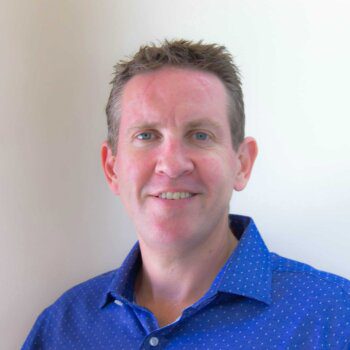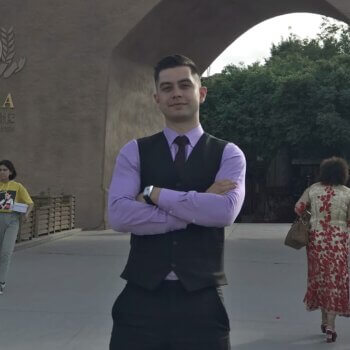After being educated in the USA, Schwin returned to his native Thailand and began his career into asset management
What’s your story?
I grew up in Thailand and was sent to the US at the age of 12, where I studied for 10 years. I have a very entrepreneurial nature and am also very passionate about finance. I attempted to launch two startups, one during my time at Kenan-Flagler and one after I graduated. I initially refused my parents’ requests and never wanted to get a corporate job. Eventually when my partners couldn’t continue working full time on our ideas, and we lost momentum, I caved into my parents’ demands and did a short stint at CLSA covering bank and telecoms in Thailand. I hated forecasting what others did without the ability to take action. During my stint at CLSA, I was introduced to a company called Catapult Group International prior to it’s IPO. I spent a couple months convincing various members of my family to invest, and luckily was able to get their support for my first investment. We made ~5X in 2 years, which gave the family more confidence to allocate more and more capital to deals I wanted to invest in, eventually enabling me to set up a fully fledged family office. Other friends and family members asked to co-invest, and I eventually set up fund structures to facilitate this.

What excites you most about your industry?
Asset Management. I’m excited for the democratization and disintermediation of capital and wealth management. Historically this has been very concentrated with distribution strength or regulatory advantages of certain firms.
What is your connection to Asia?
I’m Thai, I spent almost all my time here and live here. Both sides of my family are from China.
Favourite city in Asia for business and why?
Singapore. Everything is efficient from travel time to government and business processes. Everything is also straight forward – I do not have to worry about the ambiguity in the law and processes. Their legal system is very strong and the law is enforceable unlike most countries in Asia. Furthermore, their reliance on international trade and independence has made it a necessity for their leadership to maintain independence geopolitically – they’ve done a great job of this and I don’t have to wake up worried in the middle of the night worrying about the country taking sides with someone and hurting themselves or being sanctioned.
What’s the best piece of advice you ever received?
My parents and grandfather have been my guiding light since I started in business. I talk to them almost everyday, and the advice cumulatively has been invaluable. No specific advice from them as it covers everything, but needless to say I would be nothing without them.
Externally, my high school basketball coach, Joe Mantegna, extended and materialized all the lessons my father had taught me growing up about hard work, mental toughness, discipline and grit. It proved to be the most valuable asset during my entrepreneurial journey. Passion and vision are exciting and talked about all the time, but it means nothing without execution – and execution as an entrepreneur is an endless journey that requires pursuit day and night for years. Are you willing to sacrifice time with your loved ones? Are you willing to keep pursuing something when no one believes in you and you’ve had a multitude of back to back setbacks? After being rejected by over 100 investors for an idea, will you seek the 101st person to pitch?
What people don’t realize is that there are so many negative surprises and setbacks that are so hard to climb out of if you don’t develop grit and mental toughness, and that’s exactly what Coach drilled into me. He’d share quotes like the stone cutter’s credo by Jacob Riis that I hung up on my wall “When nothing seems to help, I go and look at a stonecutter hammering away at his rock perhaps a hundred times without as much as a crack showing in it. Yet at the hundred and first blow it will split in two, and I know it was not that blow that did it, but all that had gone before.” ask “what are you doing when no one’s
looking?” He’d put us through the toughest drills and remind me that it was me that I was competing with to become better. He’d randomly ask “what are you doing when no one’s looking?,” which made me work hard everyday without any supervision at a young age since high school. That changed me permanently, and I was very fortunate to have received his guidance. Only if you can continue fighting during the worst days for long stretches of time will you succeed
Who inspires you?
Buffett & Munger inspired me to pursue finance – I always had a very negative image of businessmen before I got started. It’s funny because I was initially an art major who did not want anything to do with business.
At the time I applied to UNC Chapel Hill and pursued a major in arts as I was and am very passionate about ceramics. I wasn’t satisfied with the arts program offering and wanted to find ways to help people, which I later understood was more specifically defined as social entrepreneurship. My family told me I couldn’t help people without any money so I should check out the business school, and it so happened that Kenan-Flagler at the time was the 6th best ranked undergrad business school program in the US. I gave it a shot and luckily got in (it was a very competitive process and I didn’t think I could get in). I then learned about my family business, which was something I had no idea about the scale as I was sent away from home at a young age. I was very surprised and then became passionate about learning the arts of business.
After reading their biographies during business school – I was totally inspired: you could build one of the world’s most successful businesses and the best long term investment track record by simply focusing on the merits of business and their underlying management while upholding the highest values and operating in the cleanest of ways. They have upheld aspiring values that everyone should and could appreciate and respect. Even having accumulated such wealth they have maintained every bit of their values and frugality – they are inspiring not just as businessmen, but also as people. We hope to inspire others as they have with us.
Before partnering with anyone and taking a deep plunge, I didn’t realize that things were real. When I worked in a corporate job and started spending time in the world of finance, I was very disappointed and for a stretch of time didn’t think that such people existed. I eventually met my partner Kai Lam, who at the time was working at Himalaya Capital, and realized it was real as he and his firm completely embodied these values and were all still very successful. Spending time with Kai and his network completely unveiled an entire community of people that I highly value and continue to be inspired by until today. We hope to inspire others as Buffett & Munger have with us.
What have you just learnt recently that blew you away?
Government interventions have escalated the expectations that every country’s citizens have of its own government, and hence the level of intervention has clearly been far more elevated than previous crises that were more country/region specific — since this is way more ‘global’ than GFC or AFC or dot-com bust. So the reliance/compliance of the government as the ‘first line of defense’ is masking the true severity of the economic damage. This type of moral hazard (and aggressive enlargement of government powers) will have deep consequences and may never fully unwind.
If you had your time again, what would you do differently?
In my early days, I would have read and researched things independently and not spent time with bankers and consultants.
How do you unwind?
I like to spend time with my family, read, play basketball, and listen to music. Traveling is nice too.
Favourite Asian destination for relaxation? Why?
Anywhere in Thailand outside of Bangkok. You have the flexibility to do anything, everything is relaxed and affordable. Great food and nice people.
Everyone in business should read this book:
There are many great books out there, and as an avid reader, this is a rather hard question. If I had to start all over again, I guess I would’ve read one of Buffett’s biographies and read his letters that he’s written since 1957. He literally lays out values, principles, and business lessons year in and year out. That to me would have been a great start.
Shameless plug for your business:
We genuinely uphold our fiduciary duties and values listed on our website, and manage everyone’s capital as though it is our own. We have no conflicts of interests because this is all we care about. Both my partner and I have our family savings invested at the same terms that all external investors come in at. We only work with select partners at the BPF level and so we only get new investors through exclusive invitations.
How can people connect with you?
https://www.linkedin.com/company/blueprint-forest/
https://www.linkedin.com/company/9-basil/
—
To hear how entrepreneurs around the world overcome their challenges, search your favourite podcast platform for ‘CallumConnects‘ to hear a 5-minute daily breakdown.

Callum Laing is an entrepreneur and investor based in Singapore. He has previously started, built, and sold half a dozen businesses and is now a Partner at Unity-Group Private Equity and Co-Founder and CEO of MBH Corporation PLC. He is the author of three best-selling books ‘Progressive Partnerships’, ‘Agglomerate’, and ‘Entrepreneurial Investing’.
Connect with Callum on Twitter and LinkedIn
Download free copies of his books at www.callumlaing.com






























